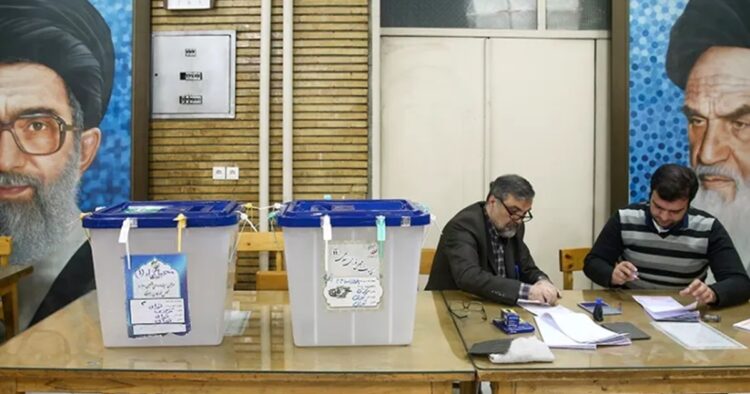Iran’s parliamentary elections concluded with a startlingly low turnout, as officials reported only 40.6% of eligible voters participated nationwide. This figure falls below the 42.5% recorded in the previous parliamentary elections of 2020, despite authorities’ hopes for a stronger showing.
Initially, after ten hours of voting, the turnout was a mere 27%, with Tehran recording a dismal 12% after eight hours. To boost participation, polling stations remained open for an additional two hours. The total number of participants reached 24,861,542 due to a last-minute surge in voting.
The Iranian regime aimed to demonstrate political legitimacy and engagement through high turnout, but the turnout fell short, sparking concerns about the government’s credibility. Many opposition groups viewed the extension of polling hours as a desperate measure to inflate turnout figures.
The election saw the disqualification of numerous reformist candidates, leading to accusations of a rigged process. With reformists sidelined, hardliners are poised to consolidate power further, tightening their grip on both the parliament and the Assembly of Experts.
Despite efforts to encourage participation, internal surveys revealed widespread apathy, with three-quarters of respondents expressing disinterest in voting. Many cited opposition to the regime or skepticism about the fairness of the elections as reasons for abstaining.
Challenges loom for the regime regarding the publication of accurate turnout results. Social media speculation abounds about the inclusion of invalid votes to inflate turnout figures, while official government agencies began deleting previously published turnout data.
In response to a growing boycott movement, authorities announced the arrest of 50 individuals accused of inciting non-participation in the elections. Meanwhile, the regime’s crackdown on dissent persisted, with the sentencing of Grammy winner Shervin Hajipour to nearly four years in prison for his song critical of the establishment.
As Iran grapples with internal dissent and international tensions, the outcome of the elections underscores deep-seated challenges to the regime’s legitimacy and the erosion of public trust in the electoral process.

















Comments